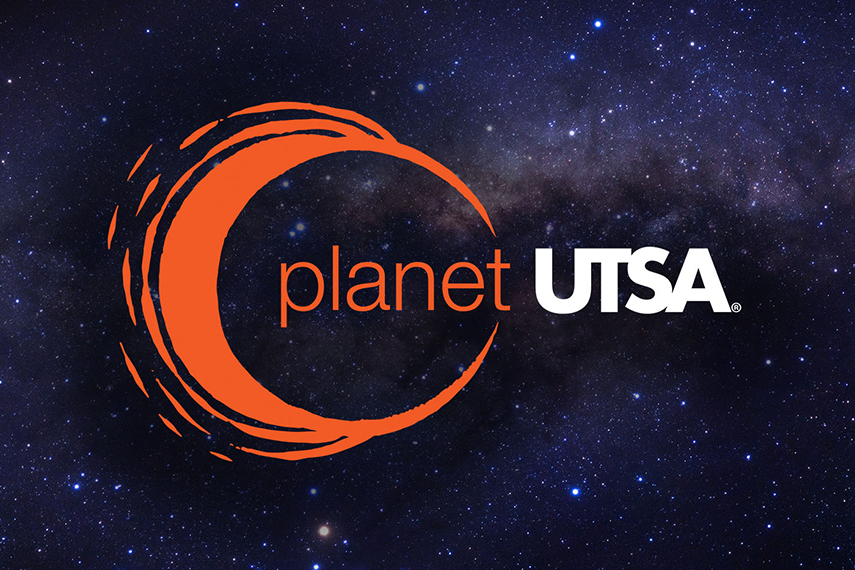
When the three celestial bodies — the Earth, Moon and Sun — perfectly align on Monday, April 8, 2024, San Antonians will join skywatchers across North America to experience a total solar eclipse.
In a new podcast called Planet UTSA, a special edition podcast series developed by the UTSA Office of University Strategic Communications, several renowned university researchers and their students explore the impact of the eclipse from various perspectives:
• March 7 — Witnessing a total solar eclipse from the path of totality
Learn how to safely view the eclipse (hint, leave your welder’s mask at home) and why it’s so important to experience this once-in-a-lifetime phenomenon from the path of totality from Angela Speck, professor and chair of the UTSA Department of Physics and Astronomy.
• March 14 — Getting kids engaged in the upcoming solar eclipse
Peek at the world of eclipse education with Chris Packham, an astrophysics professor in the UTSA Department of Physics and Astronomy. The UTSA researcher is leading an eclipse event for K-12 students. In this episode, Packham also discusses his work with the Habitable Worlds Observatory.
• March 21 — Making eclipses accessible: The LightSound Project
UTSA professor Lindsay Fuller highlights the work of UTSA students who are building LightSound devices. These products are making eclipses more accessible to individuals who are visually impaired.
• March 28 — Eclipses and bee behavior
Ferhat Ozturk, an assistant professor of practice in the UTSA Department of Integrative Biology, nestled recording devices in his bee hives to record their reactions during last October’s annular eclipse. His findings offer a look into how other living things on this planet respond to eclipses.
• April 4 — Eclipses and spirituality
Cody Cly, a doctoral candidate in UTSA’s physics and astronomy program, explores how Native Americans view eclipses as spiritual phenomena.
UTSA Today is produced by University Communications and Marketing, the official news source of The University of Texas at San Antonio. Send your feedback to news@utsa.edu. Keep up-to-date on UTSA news by visiting UTSA Today. Connect with UTSA online at Facebook, Twitter, Youtube and Instagram.
The University of Texas at San Antonio is dedicated to the advancement of knowledge through research and discovery, teaching and learning, community engagement and public service. As an institution of access and excellence, UTSA embraces multicultural traditions and serves as a center for intellectual and creative resources as well as a catalyst for socioeconomic development and the commercialization of intellectual property - for Texas, the nation and the world.
To be a premier public research university, providing access to educational excellence and preparing citizen leaders for the global environment.
We encourage an environment of dialogue and discovery, where integrity, excellence, respect, collaboration and innovation are fostered.